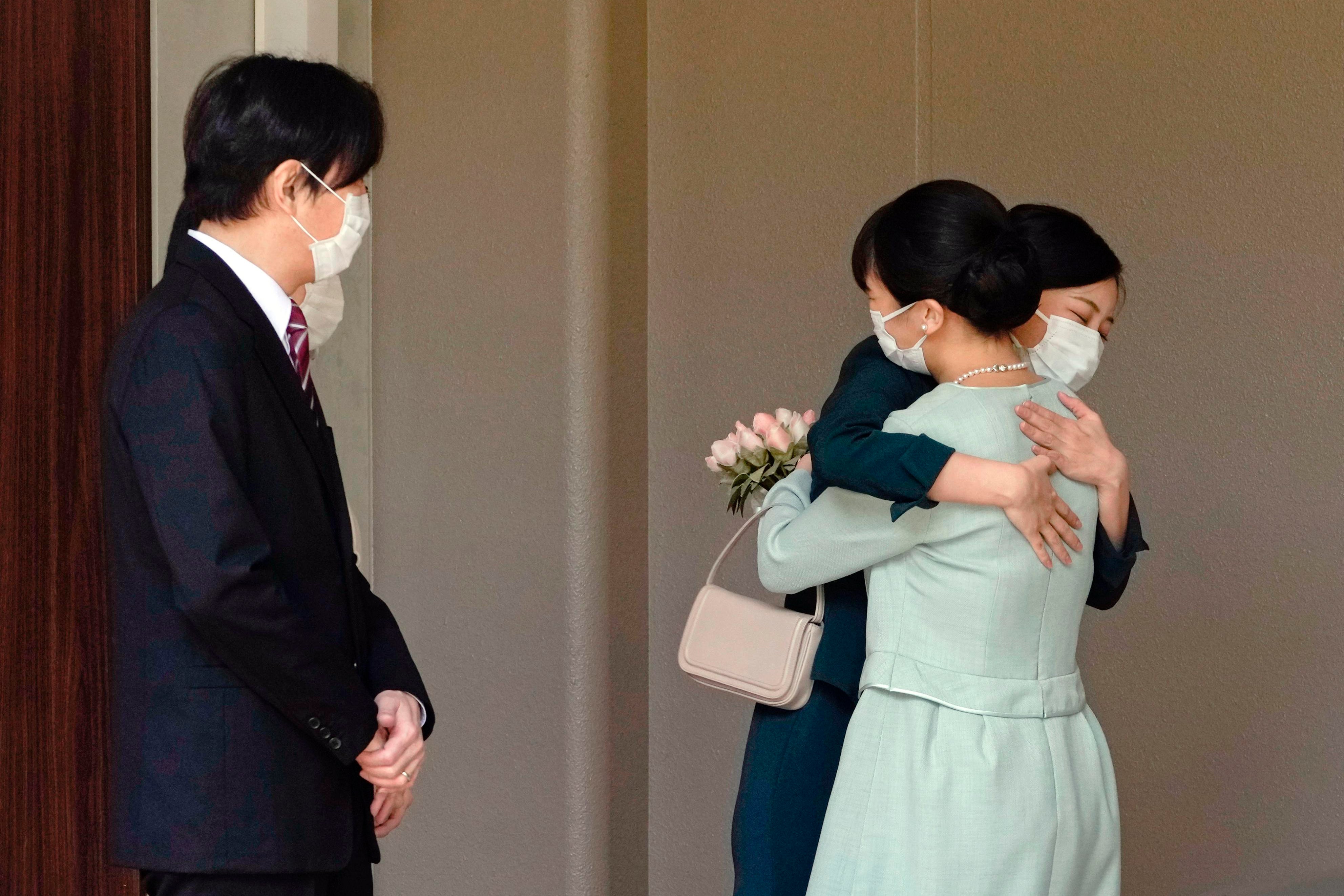Japan's Princess Mako marries commoner, loses royal status
Japanese Princess Mako has married a commoner and lost her royal status in a union that has split public opinion and was delayed more than three years by a financial dispute involving her new mother-in-law

Your support helps us to tell the story
From reproductive rights to climate change to Big Tech, The Independent is on the ground when the story is developing. Whether it's investigating the financials of Elon Musk's pro-Trump PAC or producing our latest documentary, 'The A Word', which shines a light on the American women fighting for reproductive rights, we know how important it is to parse out the facts from the messaging.
At such a critical moment in US history, we need reporters on the ground. Your donation allows us to keep sending journalists to speak to both sides of the story.
The Independent is trusted by Americans across the entire political spectrum. And unlike many other quality news outlets, we choose not to lock Americans out of our reporting and analysis with paywalls. We believe quality journalism should be available to everyone, paid for by those who can afford it.
Your support makes all the difference.Japanese Princess Mako married a commoner and lost her royal status Tuesday in a union that has split public opinion and was delayed more than three years by a financial dispute involving her new mother-in-law.
The marriage document for Mako and Kei Komuro was submitted by a palace official Tuesday morning and is now official, the Imperial Household Agency said. They will make statements at a press conference in the afternoon but will not take questions because Mako showed fear and unease at the questions that would be posed, the agency said.
Mako is recovering from what palace doctors described earlier this month as a form of traumatic stress disorder that she developed after seeing negative media coverage about their marriage, especially attacks on Komuro.
There will be no wedding banquet and there have been no other rituals for the couple. Their marriage is not celebrated by many people, the agency has said.
Mako, who turned 30 three days before the wedding, is a niece of Emperor Naruhito She and Komuro were classmates at Tokyo’s International Christian University when they announced in September 2017 they intended to marry the following year, but the financial dispute surfaced two months later and the wedding was suspended.
The dispute involves whether money his mother received from her former fiancé was a loan or a gift. Mako’s father asked Komuro to clarify, and he wrote a statement defending himself but it is still unclear if the dispute has been fully resolved.
Komuro, 30, left for New York in 2018 to study law and only returned to Japan last month. His hair, tied in a ponytail, captured attention as a bold statement for someone marrying a princess in the tradition-bound imperial family and only added to the criticism.
No longer a royal, Mako has now taken the surname of her husband — an issue affecting most other Japanese women since the law requires married couple to use one surname.
Mako has also declined the 140 million yen ($1.23 million) dowry to which she was entitled for leaving the imperial family, palace officials said. She is the first imperial family member since World War II to not receive the payment while marrying a commoner and chose to do so because of the criticism over her marrying a man some consider unfit for the princess.
On Tuesday morning, she left the palace wearing a pale blue dress and holding a bouquet. She bowed outside the residence to her parents Crown Prince Akishino and Crown Princess Kiko, and her sister Kako, then the sisters hugged each other.
The Imperial House Law allows only male succession. Female members of the royal family must renounce their royal status when they marry a commoner — a practice that has resulted in a decline in the size of the royal family and a shortage of successors to the throne.
After Naruhito, there are only Akishino and his son, Prince Hisahito, in the line of succession. A panel of government-appointed experts are discussing a stable succession of the Japanese monarchy, but conservatives still reject female succession or allowing female members to head the imperial family.